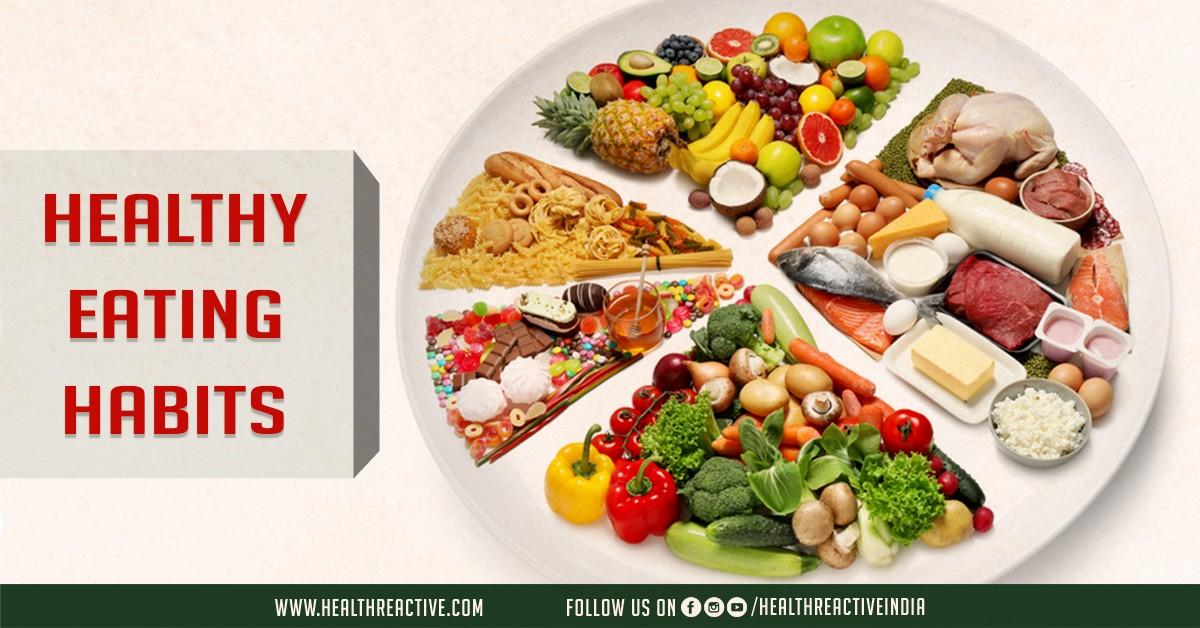Healthy Eating Habits for a Nourished and Energized Life

Eating a balanced, nutritious diet is one of the most important things you can do for your health. Healthy eating habits not only provide the necessary nutrients for your body but also promote better mental clarity, improved energy levels, and long-term wellness. Whether you are looking to improve your eating habits or maintain a healthy lifestyle, these healthy eating habits will help you on your journey to a more vibrant and energized life.
In this article, we will explore key tips for building healthy eating habits that you can incorporate into your daily routine to enhance your well-being.
Start Your Day with a Nutritious Breakfast
A healthy breakfast is the foundation of a productive day. Eating a balanced breakfast helps to jump-start your metabolism, improve focus, and provide sustained energy throughout the morning.
- Include protein and fiber: Protein and fiber-rich foods, such as eggs, Greek yogurt, oats, and whole-grain toast, keep you full longer and stabilize your blood sugar levels.
- Add healthy fats: Avocados, nuts, and seeds are great sources of healthy fats that can help reduce hunger and support brain function.
- Limit sugary options: Avoid sugary cereals, pastries, and drinks in the morning. They can cause blood sugar spikes and crashes that leave you feeling sluggish and tired.
Healthy eating habit: Aim for a breakfast that includes a combination of protein, fiber, and healthy fats to fuel your day and keep you energized.
Focus on Whole, Unprocessed Foods
One of the most effective ways to adopt healthy eating habits is to focus on whole, unprocessed foods. These foods are rich in essential nutrients, vitamins, and minerals that support overall health.
- Fruits and vegetables: Fill your plate with a variety of colorful fruits and vegetables. They are packed with antioxidants, vitamins, and minerals that are essential for immune health and overall well-being.
- Whole grains: Choose whole grains such as brown rice, quinoa, oats, and whole wheat bread over refined grains. Whole grains provide more fiber, which helps improve digestion and keeps you feeling fuller longer.
- Lean proteins: Opt for lean protein sources like chicken, turkey, tofu, legumes, and fish. These proteins support muscle growth and repair, helping to keep you strong and energized.
Healthy eating habit: Strive to fill your plate with nutrient-dense whole foods and avoid processed, sugary options as much as possible.
Control Portion Sizes
Portion control is an important aspect of healthy eating habits that often gets overlooked. Eating in moderation can help prevent overeating and promote a healthy weight.
- Use smaller plates: Serving food on smaller plates can help control portion sizes and prevent overeating.
- Listen to your body: Pay attention to hunger and fullness cues. Eat slowly and stop when you feel satisfied, not overly full.
- Practice mindful eating: Avoid distractions like television or smartphones while eating. Focus on the taste and texture of your food to prevent overeating and improve digestion.
Healthy eating habit: Practice portion control by serving appropriate amounts and listening to your body’s signals of hunger and fullness.
Stay Hydrated
Proper hydration is a crucial part of any healthy eating routine. Water is essential for digestion, nutrient absorption, and maintaining healthy skin and joints.
- Drink water regularly: Aim to drink at least 8 cups (64 ounces) of water each day. If you exercise or live in a hot climate, you may need more.
- Avoid sugary drinks: Soda, sweetened teas, and juices are high in sugar and empty calories. Opt for water, herbal teas, or flavored water with a slice of lemon or cucumber for a refreshing alternative.
- Incorporate hydrating foods: Foods like cucumbers, watermelon, oranges, and leafy greens contain high amounts of water, helping to keep you hydrated.
Healthy eating habit: Make it a habit to drink water throughout the day, aiming for at least 8 glasses, and replace sugary beverages with healthier alternatives Healthy eating habits .

Balance Your Meals with Macronutrients
Balancing your meals with the right combination of macronutrients—carbohydrates, proteins, and fats—is key to maintaining steady energy levels and supporting your overall health.
- Carbohydrates: Choose complex carbohydrates, like whole grains and vegetables, for sustained energy. They are digested more slowly and help stabilize blood sugar.
- Protein: Include high-quality protein sources in each meal, such as lean meats, legumes, eggs, or plant-based options like quinoa and tofu. Protein helps repair and build tissues and supports immune function.
- Healthy fats: Don’t be afraid to include healthy fats like olive oil, nuts, seeds, and fatty fish in your diet. These fats are essential for brain function and hormone balance.
Healthy eating habit: Aim to balance each meal with a healthy ratio of carbohydrates, protein, and fats to optimize energy and overall health.
Limit Added Sugars and Refined Carbs
Excessive intake of added sugars and refined carbohydrates can negatively impact your health by contributing to weight gain, poor blood sugar control, and increased risk of chronic diseases like diabetes and heart disease.
- Read food labels: Be mindful of added sugars in packaged foods, including snacks, sauces, and beverages. Aim to limit your intake of foods with added sugars.
- Avoid refined carbs: Replace refined carbohydrates (like white healthy eating habits. bread, pastries, and pasta) with whole grains, fruits, and vegetables. Refined carbs can cause blood sugar spikes and crashes.
- Choose natural sweeteners: If you need a sweetener, opt for healthy eating habits. natural alternatives like honey, maple syrup, or stevia in moderation.
Healthy eating habit: Limit your intake of sugary and refined foods to reduce the risk of health problems and promote better digestion and energy levels.
Plan and Prepare Your Meals
Meal planning and preparation are essential for maintaining healthy eating habits. When you plan your meals ahead of time, you’re less likely to rely on unhealthy takeout or processed foods.
- Make a weekly meal plan: Set aside time each week to plan your meals, Healthy eating habits including breakfast, lunch, dinner, and snacks. This will help you make healthier food choices and save time during the week.
- Prepare meals in advance: Batch cook your meals or prepare ingredients ahead of time to make healthy eating more convenient. Pre-chopped vegetables, grains, and proteins can make cooking faster and easier.
- Pack your own snacks: Instead of reaching fo Healthy healthy eating habits. eating habits r vending machine snacks, pack healthy options like fruit, nuts, or yogurt to take with you on the go.
Healthy eating habit: Plan and prep your meals each week to ensure that you have healthy options available, making it easier to stick to your nutrition goals.
Also Read: Essential Self-Care Habits for a Balanced and Fulfilling Life

Enjoy Your Food Mindfully
Mindful eating is a practice that involves being fully present while eating, which can help you develop a healthier relationship with food.
- Eat slowly and savor each bite: Take time to chew your food thoroughly and appreciate the flavors and textures. This not only enhances your enjoyment but also helps with digestion.
- Eliminate distractions: Avoid eating while watching TV, scrolling on your phone, or working. Focusing on your meal helps you become more attuned to hunger cues and prevents overeating.
- Be kind to yourself: Don’t be too hard on yourself if you occasionally indulge in less healthy options. The key is balance and moderation, not perfection.
Healthy eating habit: Practice mindful eating by slowing down and focusing on the experience of eating, making meals more satisfying and enjoyable.
Conclusion: Building Healthy Eating Habits for a Sustainable Lifestyle
Adopting healthy eating habits is a key component of living a long, vibrant, and energetic life. By focusing on nutrient-dense foods, controlling portions, staying hydrated, and practicing mindful eating, you can nourish your body and enhance your healthy eating habits. overall health.
Remember, it’s not about perfection, but about making consistent, sustainable choices that support your well-being. Start small by incorporating a few of these healthy eating habits into your routine, and over time, they will become second nature





